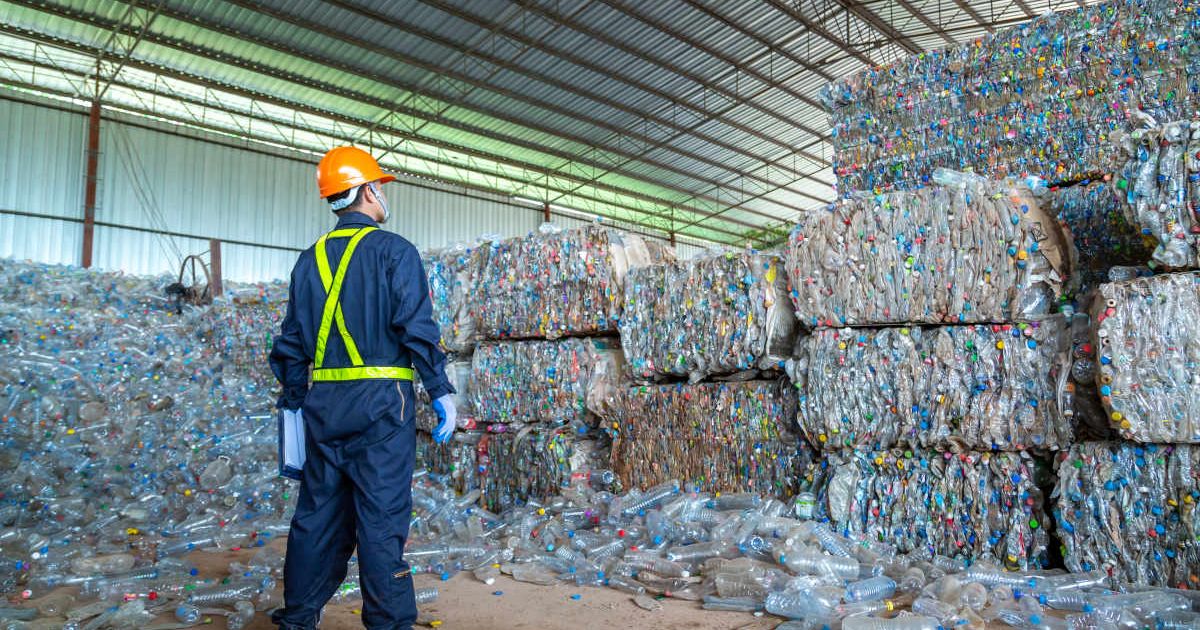Experts Put Dozens of Trackers in Plastic Bags Meant to Be Recycled And Noticed How Many Made It

Plastic pollution is one of the greatest factors in the degradation of the planet’s natural resources. These materials impact ecosystems and human health, while it’s non-biodegradable nature leaves a lasting impact on the environment. Governments and organizations are well-versed with the detrimental effects of plastic waste, and yet, there seems to be a loophole in the execution of recycling processes. The American Chemistry Council promoted a recycling program to ensure the public was actively involved in the recycling of plastic bags, a leading contributor to plastic waste. When ABC News conducted a secret investigation using trackers on plastic bags to test the efficiency of the recycling process, the dark truth was unveiled.

Investigation questions plastic recycling

Noting the increasing amount of plastic waste, especially from retailers, the ACC, which is a trade association that represents plastic manufacturers and companies, used the WRAP program. It installed 18,000 drop-off locations nationwide, mostly at Target and Walmart stores, where consumers would drop off their plastic bags, while retailers were responsible for the collection. "We want to make it easy, simple, and convenient for consumers, so that they can do the right thing that they want to do, which is recycle more products," said Joshua Baca, the VP of the ACC’s Plastic Division.

To test its effectiveness, ABC News deployed 46 trackers across 10 states in the U.S. as part of their largest investigation into plastic bag recycling streams. With intense surveillance of the trackers, the news outlet figured out the fate of most of the plastic bags collected at the drop-offs. The majority of the trackers were anywhere but at the intended destinations for plastic bag recycling. Few of the trackers ended up in landfills, like the Seneca Meadows Landfill in Waterloo, or trash incinerators. Surprisingly, many of the trackers were found thousands of miles away from the U.S., in countries like Indonesia and Malaysia.
The reality of plastic recycling

Judith Enck, president of Beyond Plastics and former EPA regional administrator, told the outlet, “No responsible waste company in the United States, no responsible local government should be exporting plastic waste to other countries.” The trackers reached the Asian nations through their plastic imports, which accept plastic waste from other nations into their own. Unfortunately, only four of the 46 trackers were last detected in facilities involved with recycling bags in the U.S. Baca accepts that the store drop-off program is not as effective and needs to push for alternative ways.

According to a 2018 report by the Organisation for Economic Co-operation and Development, less than 10% of plastic waste is recycled. This is because of the irony within the plastic recycling industry. Advocates for plastic recycling are the same “deep-pocketed” stakeholders of the industry who resist this change. Walmart and Target refused interviews with the news outlet, and also stopped them from checking the fate of the plastic drop-off bags at their stores. Courtney Williams, a resident of Peekskill in New York, known for polluted surroundings, suggested that consumers should be made aware of the consequences of plastic recycling and how it affects the air they breathe.
More on GreenMatters
Sweet Border Collie Helps Its Owners Tidy Up the Streets by Picking up Over 1,000 Plastic Bottles